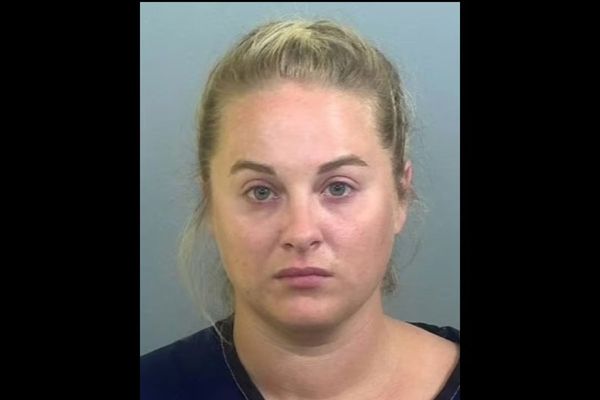
Franz Xaver Kroetz’s play, newly translated by Conor McPherson, was originally written in 1975 and pointed to the high price paid by ordinary people for the postwar German economic miracle. Times are hard for lorry driver Kurt and his heavily pregnant wife, Martha. She adds to the family budget by doing telemarketing from the kitchen table in their tiny bedsit. With their child’s arrival imminent, both are determined to build a nest, and that means buying things they can ill afford. “My baby doesn’t need anything second hand,” pronounces Kurt, as he sets about proving he’s a man in the only way he knows how: his purchasing power.
In this fable, actions always have consequences. Kurt’s boss is resisting attempts by the union to introduce a limit to the number of hours worked to protect the drivers’ mental health. When Kurt is promised as much overtime as he can manage, he’s thrilled and proudly tells the union to stuff it: “There’s more to life than mental health, you know.” But after Kurt’s boss slips him an extra couple of hundred euros to do a special job, the cost to the little family is a high one. Greed poisons everything.
Although Kroetz’s play now looks a little simplistic and old-fashioned, its environmental message couldn’t be more topical as frackers and oil companies continue to pollute in the endless search of a quick return. In Alyson Cummins’s design the natural world looks as if it is encroaching on the dingy little flat, where all the furniture has a dirty tide mark as if rescued from a flood.

McPherson’s translation, which comes with a forgettable score by PJ Harvey, doesn’t always sidestep the play’s didactic impulses, but it is very good at showing the poverty of Kurt and Martha’s lives and their inability to articulate their despair or bring about change. No more so than in a long scene where Kurt’s desperate attempts to kill himself turn into a terrible comedy of failure.
When Martha does eventually find her voice, it is to accuse Kurt of being nothing more than “a trained ape”. The spirit of Büchner’s Woyzeck and Von Horváth’s Kasimir and Karoline hangs over the play.
Laurence Kinlan as the likable, but clearly none too bright Kurt, and Caoilfhionn Dunne as a woman who realises that she too bears some responsibility for what has happened, are very watchable, but Ian Rickson’s production doesn’t heighten the naturalism sufficiently. As a result, the slow pace becomes ponderous rather than tension-filled, and the extraordinary scene in which Kurt does his boss’s bidding is almost inconsequential rather than filled with foreboding.
• At the Young Vic, London, until 26 November. Box office: 020-7922 2922.







